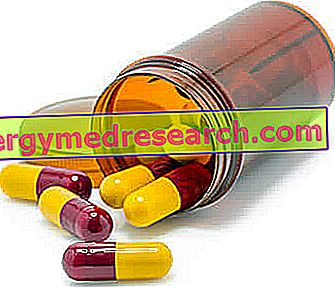

Benzoic acid, in nature, is found in free or combined form; it can be obtained from natural sources, in fact for example it is present in benzoin (see photo), in balsam of Peru and Tolù, in other balms, in prunes, in yogurt, but in practice it is produced by chemical synthesis starting from anhydride phthalic.
On the market almost all the benzoic acid is converted into phenol and caprolactam, compounds used in the plastic industry.
Benzoic acid and its salts are used as food preservatives to combat the action of yeasts and bacteria in foods with an acid pH; they are usually used in flavored soft drinks, in alcoholic beverages, in canned fish, in jams, in most fruits, especially blueberries, mushrooms, cinnamon, cloves and some dairy products.
At the concentrations used, there does not appear to be any side effects on health; it can happen however that in predisposed subjects, benzoic acid and benzoates can trigger allergic reactions.
Their use in various products is limited, because if present in high concentrations they produce a bitter taste.
The salts of benzoic acid are:
- SODIUM E211BENZOATE → this preservative derives from E210. Thanks to its great solubility, 200 times higher than that of benzoic acid, it is one of the major antimicrobial agents used in food and drink; however, it appears to be harmful, so its concentration in the products must be at most 0.1%. Recent studies have shown that it can cause adverse effects for the liver and the brain; it can also cause rashes, asthma and anaphylactic shock. The frequent consumption of foods containing this preservative is not recommended.
- E212BEZOATO OF POTASSIUM → this preservative derives from E210. Its function is to stop the growth of mold, some bacteria and the fermentation of products. Its maximum effectiveness is in products with a low pH, ie less than 4.5, so it is present in acidic foods and beverages such as fruit juices, carbonated drinks and pickles.
Potassium benzoate, along with ascorbic acid (vitamin C), can form benzene, a known carcinogenic compound.
- E213BENZOATO OF CALCIO
ADI DOSE (for benzoic acid and its salts): 5 mg for each kg of body weight.
| E200 | E201 | E202 | E203 | E210 | E211 | E212 | E213 |
| E214-E2119 | E220 | E221 | E222 | E223 | E224 | E225 | E226 |
| E227 | E228 | E230 | 231 | E232 | E233 | E234 | E235 |
| E236 | E237 | E238 | E239 | E240 | E242 | E249 | E250 |
| E251 | E252 | E260 | E261 | E262 | E263 | E270 | E280 |
| E284 | E285 | E290 | E296 | E297 |




